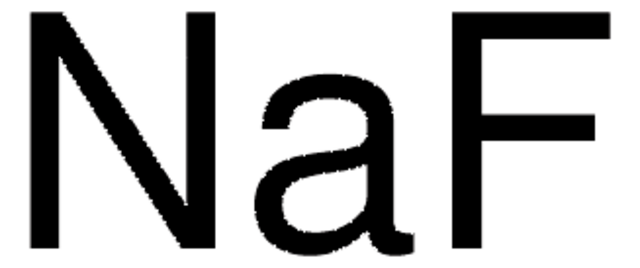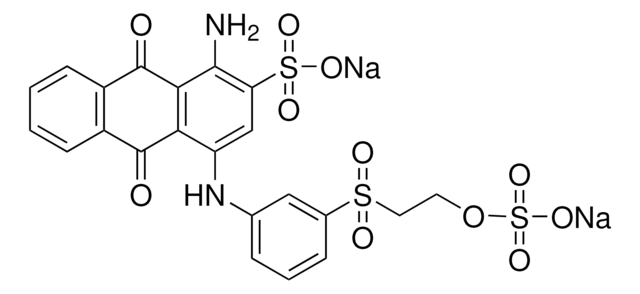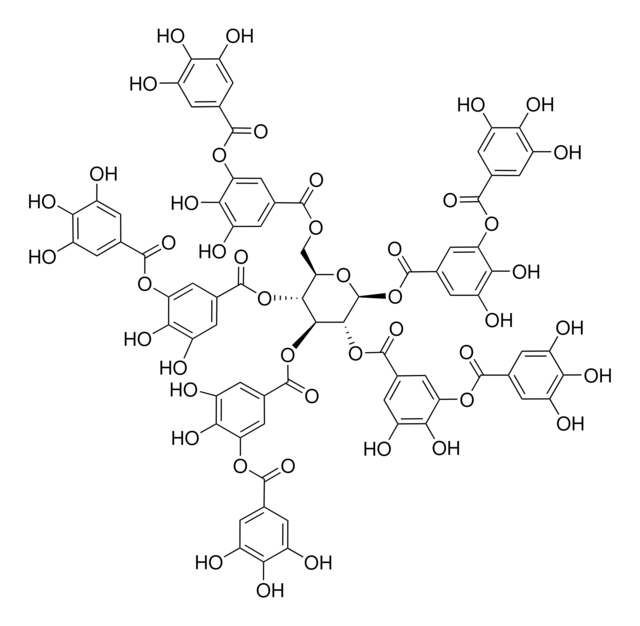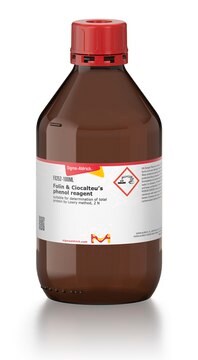About This Item
Recommended Products
vapor pressure
1.4 mmHg ( 0 °C)
Quality Level
product line
ReagentPlus®
Assay
≥99%
form
powder
mp
993 °C (lit.)
SMILES string
[F-].[Na+]
InChI
1S/FH.Na/h1H;/q;+1/p-1
InChI key
PUZPDOWCWNUUKD-UHFFFAOYSA-M
Looking for similar products? Visit Product Comparison Guide
Related Categories
Application
- Investigations of the reaction mechanism of sodium with hydrogen fluoride to form sodium fluoride and the adsorption of hydrogen fluoride on sodium fluoride monomer and tetramer.: The paper delves into the reaction mechanisms between sodium and hydrogen fluoride, and the adsorption properties of hydrogen fluoride on sodium fluoride structures, which are vital for chemical synthesis and industrial applications (Yu et al., 2024).
Legal Information
Not finding the right product?
Try our Product Selector Tool.
Signal Word
Danger
Hazard Statements
Precautionary Statements
Hazard Classifications
Acute Tox. 3 Oral - Eye Irrit. 2 - Skin Irrit. 2
Supplementary Hazards
Storage Class Code
6.1D - Non-combustible acute toxic Cat.3 / toxic hazardous materials or hazardous materials causing chronic effects
WGK
WGK 1
Flash Point(F)
Not applicable
Flash Point(C)
Not applicable
Regulatory Listings
Regulatory Listings are mainly provided for chemical products. Only limited information can be provided here for non-chemical products. No entry means none of the components are listed. It is the user’s obligation to ensure the safe and legal use of the product.
PDSCL
Deleterious substance
PRTR
Class I Designated Chemical Substances
ISHL Indicated Name
Substances Subject to be Indicated Names
ISHL Notified Names
Substances Subject to be Notified Names
JAN Code
S1504-100G:4548173363479
S1504-BULK:
S1504-H:
S1504-500G:4548173363486
S1504-VAR:
S1504-1KG:
Choose from one of the most recent versions:
Already Own This Product?
Find documentation for the products that you have recently purchased in the Document Library.
Customers Also Viewed
Our team of scientists has experience in all areas of research including Life Science, Material Science, Chemical Synthesis, Chromatography, Analytical and many others.
Contact Technical Service







